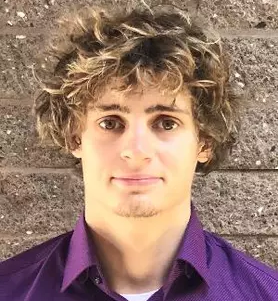Dekker scholarship for MRI research Sebastian Weingärtner
The Hartstichting has awarded researcher Dr. Sebastian Weingärtner of TU Delft a Dekker scholarship. This is a personal research grant for talented scientists that is awarded annually. With the grant of 490,000 euros, he can conduct research into cardiovascular diseases over the next few years.
Dr. Sebastian Weingärtner will develop an MRI technique that will enable doctors to more accurately measure how well the hearts of people with heart failure are working. This will also enable cardiologists to see the effect of new medications. They may even be able to detect people at risk of heart failure and prevent them from actually becoming ill.
Oxygen
About 242,000 people in the Netherlands suffer from heart failure. Their heart can't pump enough blood through the body. For about 50% of these people, the heart does not squeeze hard enough and for the other half, the heart is too stiff. The heart then cannot relax properly and does not fill with blood properly. For this last group of people there is no proper treatment yet.
An important reason for this is that scientists do not yet know exactly what causes this form of heart failure. They think it is because the heart muscle does not get enough oxygen. This may be because the small blood vessels in the heart do not supply enough blood or because the heart muscle does not use the oxygen properly.
Magnetic field
At the moment, doctors are not able to measure the heart's oxygen consumption properly. MRI physicist Dr. Sebastian Weingärtner wants to change this, and in a very special way. He is going to use the effect that oxygen has on MRI scans.
"The patient's body makes the magnetic field in the MRI a little weaker," Weingärtner explains. "Oxygen can actually make the magnetic field stronger. Usually, oxygen causes annoying disturbances in the image as a result, but in this case it plays to our advantage. By observing these disturbances very precisely, we can measure the amount of oxygen in the heart. This way we will soon know how much oxygen the small blood vessels supply and how much the heart muscle uses."
Not burdensome
If he succeeds in this, doctors will soon be able to measure how the heart muscle is doing for the first time without it being stressful for patients. They will also be able to test the effect of new medications. Doctors may even be able to detect people at risk of heart failure and prevent them from actually falling ill.
More information
Read more about the Dekker scholarship here. (in Dutch)
Press officer TU Delft: Dimmy van Ruiten,
d.m.vanruiten@tudelft.nl, (+31) 15 27 81588
